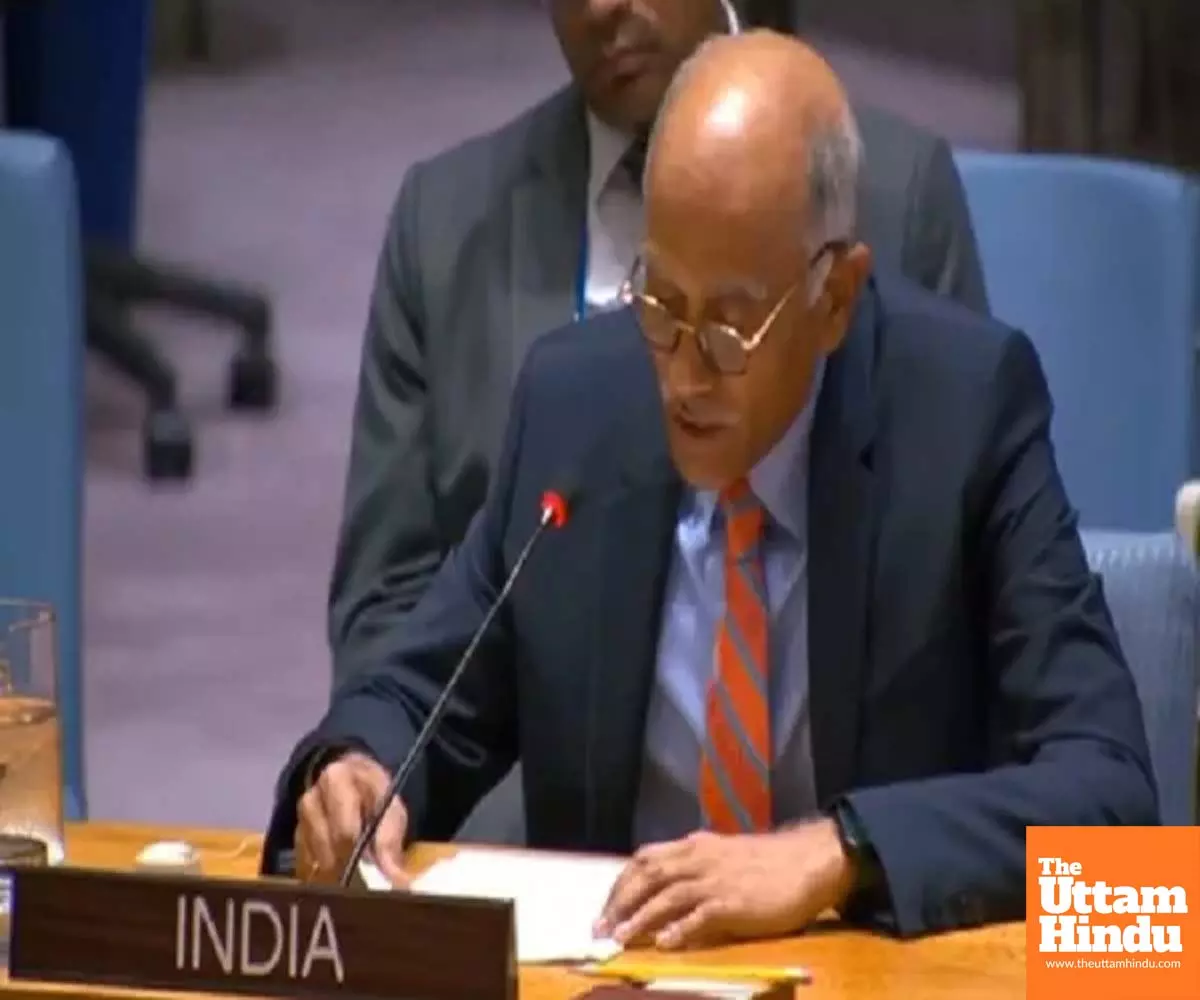
United Nations (The Uttam Hindu): India called on the international community to ensure that Lashkar-e-Taiba (LeT), Jaish-e-Mohammed (JeM) and other terrorist groups do not misuse Afghan soil. India's Permanent Representative P. Harish told the Security Council on Wednesday that India is closely monitoring the security situation in Afghanistan.
He said, “The international community must unite to ensure that organizations and individuals designated by the United Nations Security Council, such as the Islamic State, al-Qaeda and their affiliates Lashkar-e-Taiba and Jaish-e-Mohammed, and their supporters, do not use Afghan soil for terrorist activities.”
Harish further said that India welcomes the strong condemnation of the terrorist attack in Pahalgam by The Resistance Front, an organisation linked to Lashkar-e-Taiba, in which 26 civilians were killed on the basis of their religion. Roza Otunbayeva, Special Representative of the Secretary-General for Afghanistan, who spoke earlier during the Council's discussion on the United Nations Assistance Mission in Afghanistan (UNAMA), warned that the presence of extremist groups remains a problem for Afghanistan despite a significant decline in large-scale armed conflict and violence.
The Taliban took over Afghanistan after the withdrawal of US troops in 2021, but the United Nations and most countries, including India, have not recognized it. However, Harish said a new approach to Afghanistan is needed.
He said that any coherent policy for dealing with post-conflict situations must combine encouraging positive behavior and discouraging harmful actions. Focusing solely on punitive measures is unlikely to achieve the desired results.
He pointed out that the United Nations and the international community have adopted a more nuanced approach in other post-conflict contexts and said that Afghanistan similarly requires a new approach with hitherto untapped policy tools to assist its people who are in dire need. He said that maintaining the status quo is not good for Afghanistan. It is unlikely to meet the expectations of the international community for the people of Afghanistan. He said that India will continue to engage with all relevant stakeholders.
India's External Affairs Minister S. Jaishankar spoke twice with Afghanistan's acting Foreign Minister, Amir Khan Muttaqi. Muttaqi was scheduled to visit New Delhi this month, but his trip was canceled due to UN sanctions that restrict his travel. However, Afghanistan's Deputy Medicine and Food Minister, Hamdullah Zahid, and a top Taliban official who handles security and strategic affairs (his name was not revealed) recently visited India.
Jaishankar stated that India's commitment to meeting the development needs of the people of Afghanistan remains unwavering. He also mentioned the various humanitarian assistance India has provided to Afghanistan. UN official Otunbayeva said she hopes a path can be found for cooperation with Afghanistan that yields positive results, especially for Afghan women and girls.
He explained that the Taliban leadership has two schools of thought: one that prioritizes the needs of the Afghan people and another that focuses on creating a pure Islamic system. The group that emphasizes Islamic order has imposed numerous restrictions on Afghans, especially women, such as limiting their freedom to education and work.
Otunbayeva pointed out that women were denied assistance during the recent earthquake and that female UN staff were prevented from entering their offices. She said that such irresponsible attitudes have led the international community to question whether they should support a country whose leaders undermine the interests of their people.
